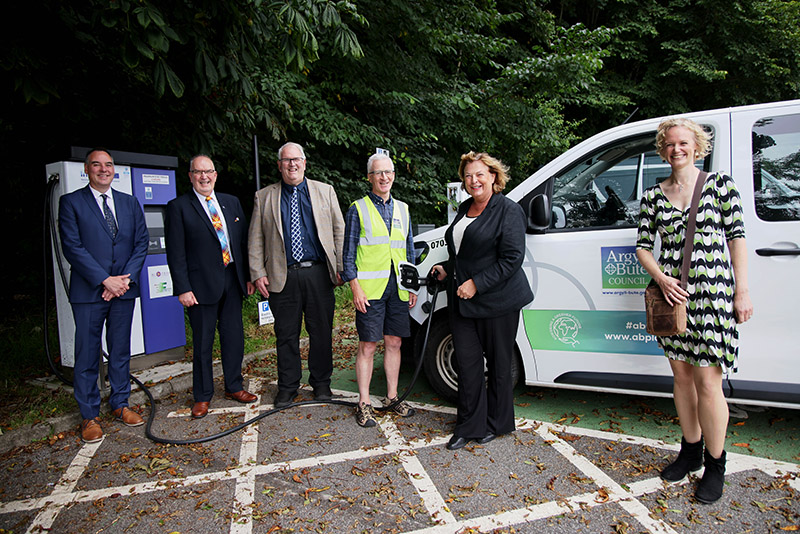
TRANSPORT Scotland has announced that over £3 million has been awarded to a group of local authorities to support the delivery of electric vehicle (EV) charging infrastructure.
The north-west Scotland EV Infrastructure Fund project is being led by HITRANS and incorporates Argyll and Bute, Orkney, Shetland and Comhairle nan Eilean Siar (Western Isles) councils.
Since 2011, the Scottish Government has provided over £65 million in public EV charging. A target for 6,000 public charge points was met in October 2024, two years ahead of schedule.
The EV Infrastructure Fund will target public funding at ‘less commercially viable sites’, particularly for rural and island communities.
Cabinet secretary for transport Fiona Hyslop said, “I’m delighted to announce the latest award from our £30 million Electric Vehicle Infrastructure Fund, to encourage greater private sector investment in the EV charging network. The Scottish Government has set out a route map to deliver on our vision for public EV charging infrastructure in Scotland and ambition to create 24,000 additional public charge points by 2030, largely funded and delivered by the private sector.
“In addition to the public funding from EVIF, we anticipate the private sector investing at least an additional £30 million of its own capital, meaning public funding should be prioritised for those areas of Scotland less likely to benefit from stand-alone private sector investment in public EV charging infrastructure. This includes rural and island communities like those which will be served by this north-west Scotland project led by HITRANS. I look forward to hearing how the EVIF project helps EV drivers across this region, and all of Scotland, over the coming months and years.”
Ranald Robertson, HITRANS partnership director, added, “HITRANS and partner councils are delighted to secure this multi-year funding for the expansion of the electric vehicle charging network across Argyll and Bute and the Northern and Western Isles. Collaborating across the region to share our resource and challenges has highlighted some unique opportunities that we are keen to explore in parallel, such as the abundant renewable energy generation in the area.
“Our aim is to grow a regional charging network that is financially self-sustaining and locally powered as much as possible. This investment will help support a just transition to a more environmentally sustainable, reliable and affordable transport network.”








